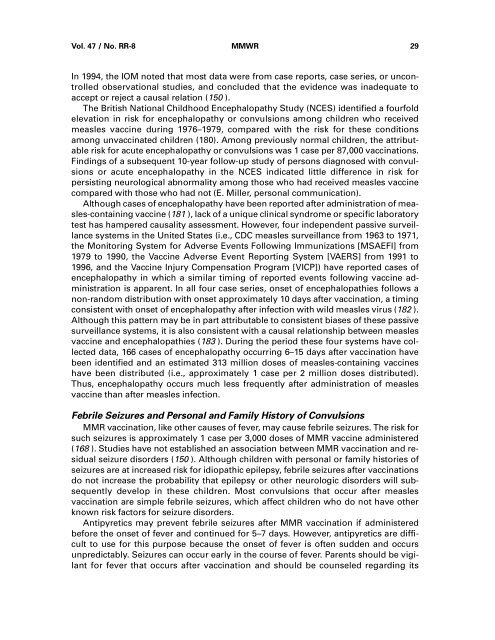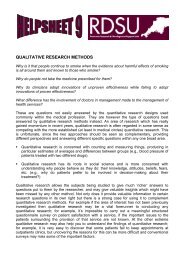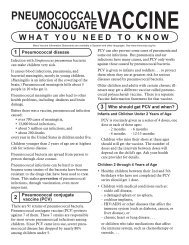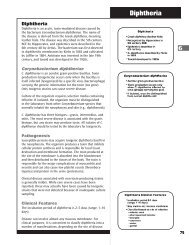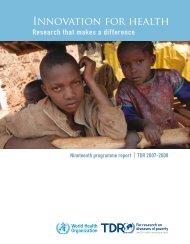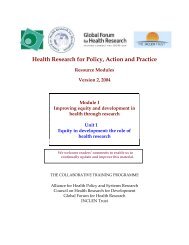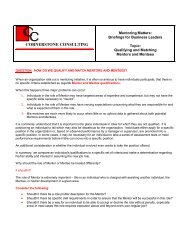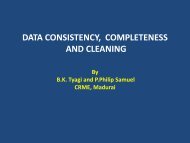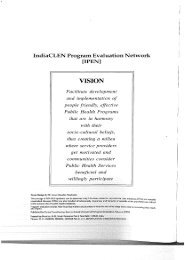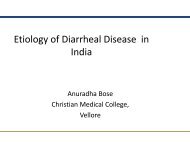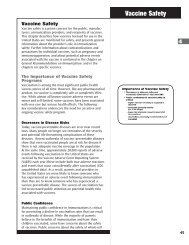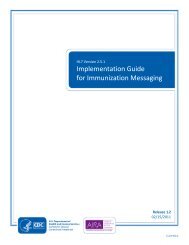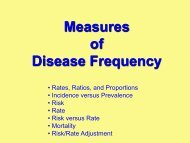Measles, Mumps, and Rubella - Centers for Disease Control and ...
Measles, Mumps, and Rubella - Centers for Disease Control and ...
Measles, Mumps, and Rubella - Centers for Disease Control and ...
Create successful ePaper yourself
Turn your PDF publications into a flip-book with our unique Google optimized e-Paper software.
Vol. 47 / No. RR-8 MMWR 29In 1994, the IOM noted that most data were from case reports, case series, or uncontrolledobservational studies, <strong>and</strong> concluded that the evidence was inadequate toaccept or reject a causal relation (150 ).The British National Childhood Encephalopathy Study (NCES) identified a fourfoldelevation in risk <strong>for</strong> encephalopathy or convulsions among children who receivedmeasles vaccine during 1976–1979, compared with the risk <strong>for</strong> these conditionsamong unvaccinated children (180). Among previously normal children, the attributablerisk <strong>for</strong> acute encephalopathy or convulsions was 1 case per 87,000 vaccinations.Findings of a subsequent 10-year follow-up study of persons diagnosed with convulsionsor acute encephalopathy in the NCES indicated little difference in risk <strong>for</strong>persisting neurological abnormality among those who had received measles vaccinecompared with those who had not (E. Miller, personal communication).Although cases of encephalopathy have been reported after administration of measles-containingvaccine (181 ), lack of a unique clinical syndrome or specific laboratorytest has hampered causality assessment. However, four independent passive surveillancesystems in the United States (i.e., CDC measles surveillance from 1963 to 1971,the Monitoring System <strong>for</strong> Adverse Events Following Immunizations [MSAEFI] from1979 to 1990, the Vaccine Adverse Event Reporting System [VAERS] from 1991 to1996, <strong>and</strong> the Vaccine Injury Compensation Program [VICP]) have reported cases ofencephalopathy in which a similar timing of reported events following vaccine administrationis apparent. In all four case series, onset of encephalopathies follows anon-r<strong>and</strong>om distribution with onset approximately 10 days after vaccination, a timingconsistent with onset of encephalopathy after infection with wild measles virus (182 ).Although this pattern may be in part attributable to consistent biases of these passivesurveillance systems, it is also consistent with a causal relationship between measlesvaccine <strong>and</strong> encephalopathies (183 ). During the period these four systems have collecteddata, 166 cases of encephalopathy occurring 6–15 days after vaccination havebeen identified <strong>and</strong> an estimated 313 million doses of measles-containing vaccineshave been distributed (i.e., approximately 1 case per 2 million doses distributed).Thus, encephalopathy occurs much less frequently after administration of measlesvaccine than after measles infection.Febrile Seizures <strong>and</strong> Personal <strong>and</strong> Family History of ConvulsionsMMR vaccination, like other causes of fever, may cause febrile seizures. The risk <strong>for</strong>such seizures is approximately 1 case per 3,000 doses of MMR vaccine administered(168 ). Studies have not established an association between MMR vaccination <strong>and</strong> residualseizure disorders (150 ). Although children with personal or family histories ofseizures are at increased risk <strong>for</strong> idiopathic epilepsy, febrile seizures after vaccinationsdo not increase the probability that epilepsy or other neurologic disorders will subsequentlydevelop in these children. Most convulsions that occur after measlesvaccination are simple febrile seizures, which affect children who do not have otherknown risk factors <strong>for</strong> seizure disorders.Antipyretics may prevent febrile seizures after MMR vaccination if administeredbe<strong>for</strong>e the onset of fever <strong>and</strong> continued <strong>for</strong> 5–7 days. However, antipyretics are difficultto use <strong>for</strong> this purpose because the onset of fever is often sudden <strong>and</strong> occursunpredictably. Seizures can occur early in the course of fever. Parents should be vigilant<strong>for</strong> fever that occurs after vaccination <strong>and</strong> should be counseled regarding its


